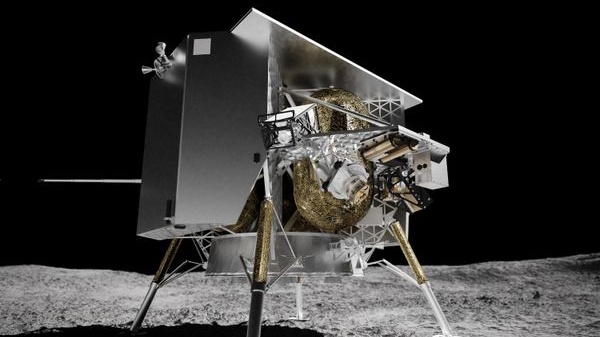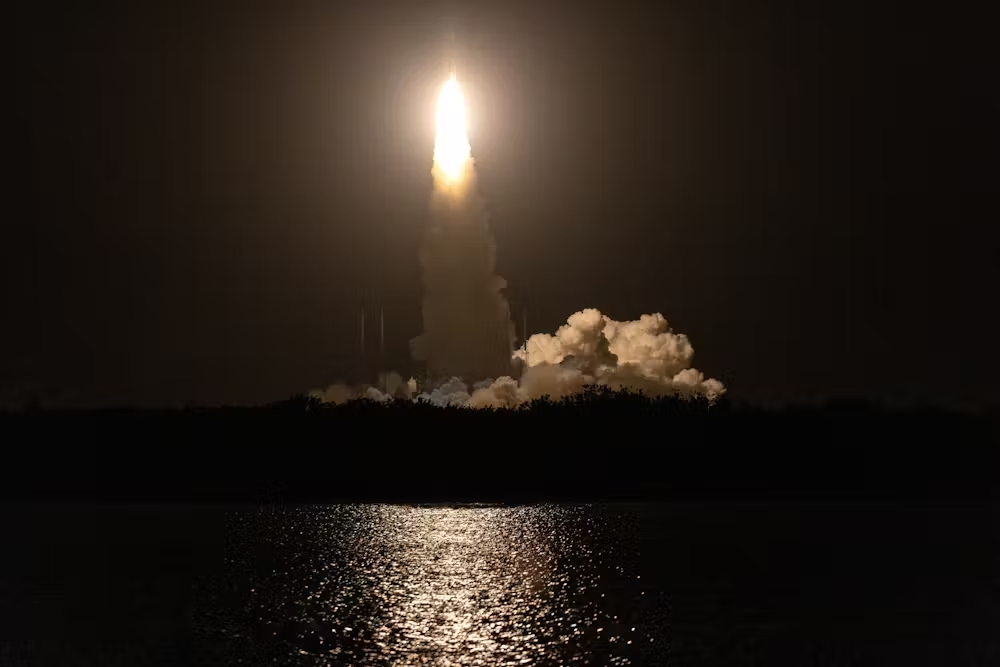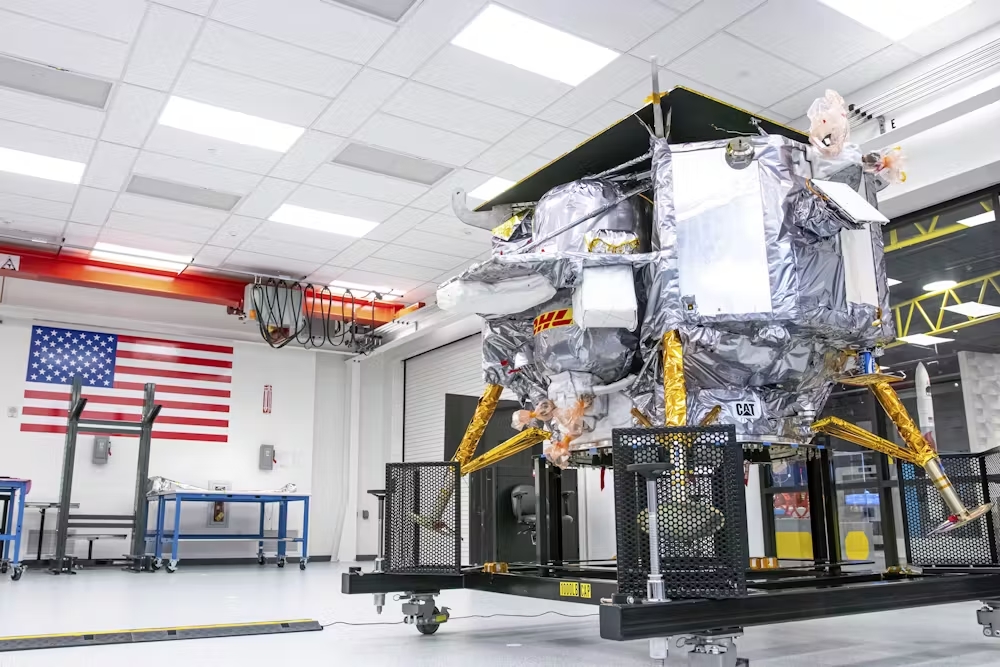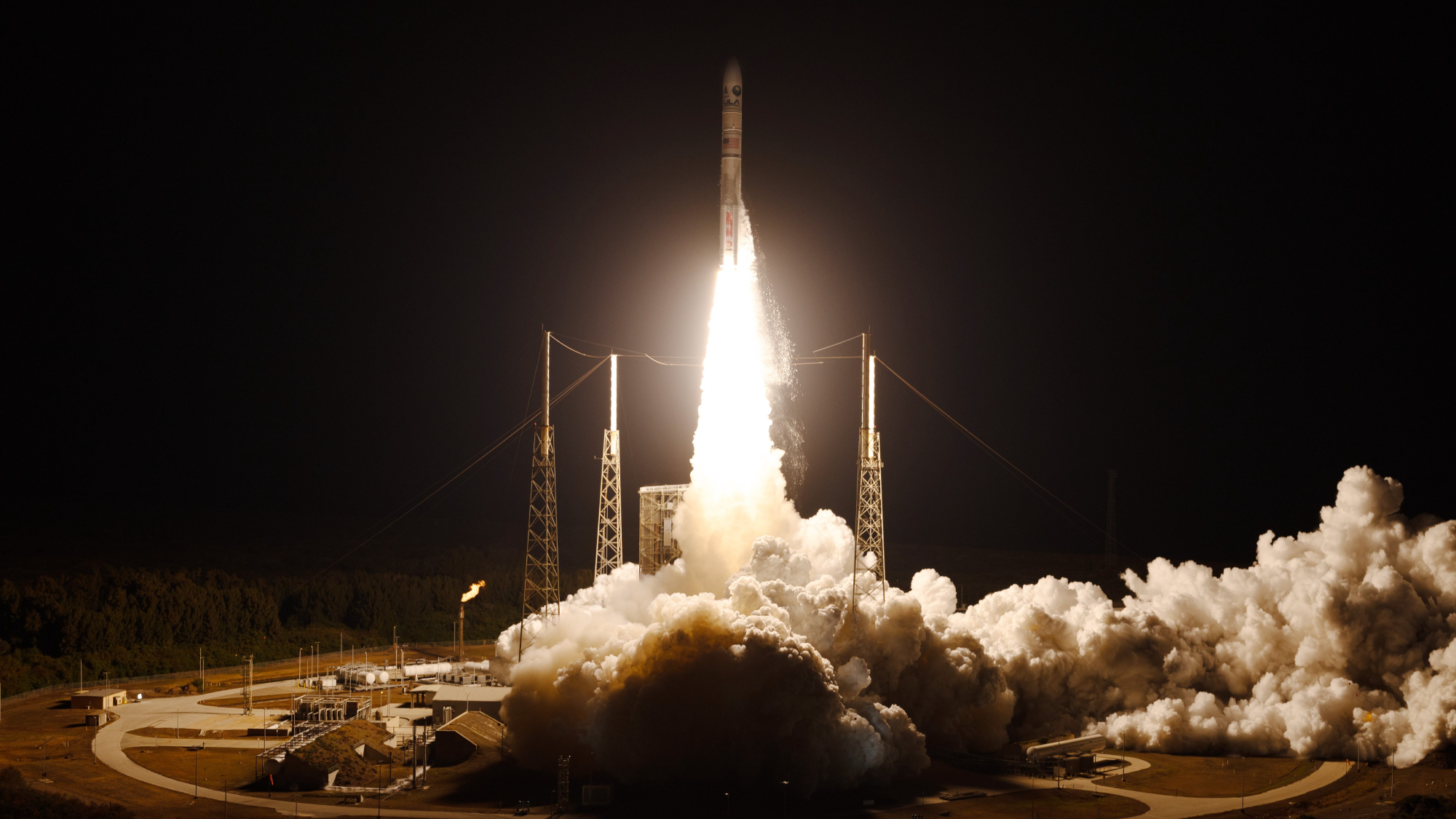You can pay to have your ashes buried on the moon. Just because you can doesn’t mean you should
Is it a good idea to send your ashes to the moon?

Breaking space news, the latest updates on rocket launches, skywatching events and more!
You are now subscribed
Your newsletter sign-up was successful
Want to add more newsletters?

Delivered daily
Daily Newsletter
Breaking space news, the latest updates on rocket launches, skywatching events and more!

Once a month
Watch This Space
Sign up to our monthly entertainment newsletter to keep up with all our coverage of the latest sci-fi and space movies, tv shows, games and books.

Once a week
Night Sky This Week
Discover this week's must-see night sky events, moon phases, and stunning astrophotos. Sign up for our skywatching newsletter and explore the universe with us!

Twice a month
Strange New Words
Space.com's Sci-Fi Reader's Club. Read a sci-fi short story every month and join a virtual community of fellow science fiction fans!
When NASA attempted to return to the Moon for the first time in 50 years on January 8, more was at risk than just US$108 million worth of development and equipment.
The agency earned the ire of the Native American Navajo people, who made a bid to stop the launch because of an unusual inclusion in the payload.
The Peregrine lander (which completed its controlled re-entry into the atmosphere late last week) was carrying human ashes, including those of famed science fiction author Arthur C. Clarke. A commercial partnership also allowed paying customers to send their mementos to the moon.
As space exploration becomes increasingly privatized and commercial, you can now send your favorite stuff to the moon. But what does that mean, both ethically and legally?
Related: Private Peregrine moon lander failure won't stop NASA's ambitious commercial lunar program
The moon open for business
US company Astrobotic owns the Peregrine, which is the size of a small car. It ran into fatal fuel issues shortly after being launched on Vulcan Centaur rocket from Cape Canaveral.
On board are "vanity canisters." The idea arose in a partnership between the firm and global freight company DHL.
Breaking space news, the latest updates on rocket launches, skywatching events and more!
Under the deal, anyone can send two and a half centimeter by five centimeter package to the lunar surface for less than US$500. Apart from size, there were a few other limitations on what each package could contain.
Astrobotic, founded in 2007 and based in Pittsburgh, Pennsylvania, is one of several US companies providing commercial lunar payload services to NASA to deliver science and technology to the Moon. Peregrine was also carrying scientific instruments from six countries and many science teams.
Perhaps surprisingly, sending ashes into space is not new aboard suborbital and Earth orbital flights.
Two American companies make a business of the service starting at just a few thousand dollars – Celestis and Elysium Space. The practice is embraced by many, including astronauts who have been in space.
A Moon burial (yes, you can buy one) costs more — around US$13,000.
Commercial payloads launched from US soil require approval, but that approval process only covers safety, national security, and foreign policy.
Peregrine, if it had made it, would have marked the first commercial lunar burial. It’s uncharted territory as other worlds become within reach, although it is not the first time it has come up.
NASA pledged to consult in the future after an outcry from the Navajo when, 20 years ago, it carried some of Eugene Shoemaker’s ashes to the Moon aboard the Lunar Prospector probe. Like many other indigenous cultures, the Navajo Nation considers the Moon sacred and opposes using it as a memorial site.
However, NASA said in a press briefing it had no control over what was on Peregrine, highlighting the gaps between commercial enterprise and international space law.
A legal minefield
Another question concerns the rules in individual nations on where and how human ashes can be located, handled, and transported and how those could extend to space. For example, in Germany, ashes must be buried in a cemetery.
With space privatization accelerating, the ethical and legal maze deepens.
The Outer Space Treaty (OST) declares space the "province of all mankind" while banning national appropriation.
It fails, however, to address what private companies and individuals can do.
The recent Artemis Accords, signed by 32 nations, expand protection to lunar sites of historical significance. But these protections only apply to governments, not commercial missions.
And no one owns the Moon to grant burial rights, or any other world or celestial body.
The treaty requires states to authorize and supervise activities in space. It requires "due regard" for the interests of other states.
Many countries have space law that includes grounds for refusing payload items not in their national interest, for example Indonesia and New Zealand.
Nations apparently without such consideration, including Australia and the US, may need to consider expanding this template with the emergence of the commercial world in a traditionally governmental arena.
Where to draw a line?
Earth’s orbit is already clogged with defunct satellites and, further out, items like Elon Musk’s Tesla.
We have already spread space probes across other worlds, including the Moon, Mars, Titan, and Venus, but much may be treasure rather than junk, according to space archaeologist Alice Gorman.
For example, the Apollo astronauts left official mementos, such as a plaque marking the first human footsteps on the lunar surface. Some have left personal ones, too, like Apollo 16’s Charles Duke, who left a framed family photo.
However, sending a clipping of your hair or the ashes of your pet dog to the Moon may not qualify as culturally and historically important.
The problem, therefore, is where we want to place a line in the sand as we step out into the cosmos onto the shorelines of other worlds.
We cannot turn back the clock on private space enterprise, nor should we.
But this failed mission with ashes and vanity payloads exemplifies the unexplored questions in the legal and ethical infrastructure to support commercial activities.
It is worth pausing for thought on future commercialization such as mining asteroids and the eventual colonization of space.


